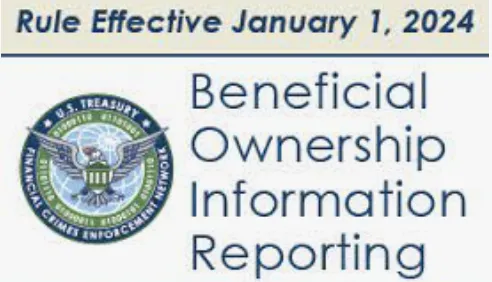Key Takeaways: Nevada Corporate Tax Rate
- Nevada is one of only four states in the country that does not require corporate or individual income tax filing. This major benefit makes Nevada a very attractive state for those seeking to establish a new business.
- Nevada has a state sales tax rate of 6.85%, a maximum local sales tax rate of 1.53%, and an average combined state and local sales tax rate of 8.23%.
- State law requires that every individual or entity doing business in Nevada to obtain a business license as soon as they begin to conduct business in the state and to renew it annually.
Is Nevada a business-friendly state?
Nevada is a great place to start a business, mainly because of the relatively low taxes compared to other states. Nevada has neither a state income tax nor a corporate tax. Nevada does not levy taxes on inventory, franchises, or inheritances, but acquiring a grant as a startup business is the biggest challenge.
Here are a few reasons why Nevada is often viewed as a business-friendly state:
- No State Income Tax: Not levying a state income tax on individuals or corporations is one of Nevada’s most notable characteristics. This can be a substantial benefit for both residents and businesses, as it leaves them with more money in their pockets.
- Business-Friendly Regulatory Environment: Nevada’s relatively streamlined regulations and pro-business attitude make it easier for businesses to establish and operate. The state has a reputation for being responsive to the needs of business and fostering a positive environment for entrepreneurship.
- Business-Friendly Laws: Nevada has enacted laws that protect business owners’ interests, including strong asset protection and liability shield laws for corporations and limited liability companies (LLCs). This has made the state an attractive location for forming corporations and LLCs.
- Tourism and Economic Growth: Nevada’s economy is bolstered by the tourism industry, particularly in cities like Las Vegas. This can offer opportunities for businesses in the hospitality, entertainment, and related sectors.
- Strategic Location: Nevada’s location in the western United States can provide businesses with logistical advantages for reaching markets on the West Coast.
What steps must I take to establish a business in Nevada?
Starting a business in Nevada takes a few easy steps:
- Choose the appropriate form of business entity. You may want to consult with a tax expert from Cleer in order to determine the most suitable business structure for your organization.
- Register your organization with the Nevada Secretary of State.
- Get your EIN (Federal Tax ID Number). You will need it for the next step.
- Open a business bank account and get a business debit or credit card.
- Get a state business license. There may be additional licensing requirements, depending on your industry.
- Register with the Nevada Department of Taxation.
How Much Does a Business License Cost in Nevada?
For the majority of entities in Nevada, the business license fee is $200. For corporations, the fee is $500. Business licenses must be renewed annually, and the fee and renewal forms are due on the last day of the anniversary month in which the license was first filed.
Does Nevada impose a state income tax?
Nevada is one of only four states in the USA with neither a corporate income tax nor a personal income tax, making it a very business-friendly state.
Does Nevada impose a franchise tax?
In Nevada, there are no franchise or inventory income taxes. Nevada is known for having business-friendly tax policies, which is why it does not have a state-level franchise tax.
Does having a mailing address in Nevada trigger corporate income tax and/or registration requirements?
Having a mailing address in Nevada may not necessarily trigger corporate income tax or registration requirements on its own, but it could be a factor in determining your company’s tax and legal obligations in the state.
Nevada, like many other states, imposes taxes and registration requirements based on a variety of factors, including business activities conducted within the state, the nature of the business, and the amount of income generated within the state. Simply having a mailing address in Nevada may not automatically subject your company to these requirements if you’re not conducting substantial business activities or generating income within the state.
However, it’s important to note that establishing a mailing address in Nevada could be a signal to tax authorities that your company has a presence in the state. This could potentially lead to inquiries about your business activities and tax obligations. If your company is genuinely based and operated outside of the United States, you must ensure that your business activities and income generation are also primarily conducted outside of Nevada to avoid unintended tax liabilities.
If I have a Nevada-based business but reside in another state, will I be taxed?
No, only companies registered to collect Nevada Sales tax. If a seller is not registered to collect and remit Nevada Sales Tax, the Nevada purchaser is responsible for paying Use Tax directly to the State of Nevada.
If your business is registered in Nevada but you reside in a different state, you may still have tax obligations to consider. The tax implications can vary depending on various factors, including the type of business entity you have (a sole proprietorship, partnership, LLC, or corporation) and the specific tax laws of both Nevada and your home state.
Here are a few points to consider:
- Nevada State Taxes: Nevada is known for not having state income tax for individuals. However, this is not always the case for businesses. Depending on the nature of your business, you might be subject to certain taxes and fees imposed by the state of Nevada. For example, if your business generates income in Nevada, you may be subject to state business taxes. It’s important to understand the tax laws specific to businesses in Nevada.
- Home State Taxes: Even if you operate your business in Nevada, your home state may require you to report the income generated by your business on your personal income tax return. Some states have provisions that require residents to pay taxes on income earned out-of-state, while others may offer tax credits to offset taxes paid to another state.
- Entity Type: The type of your business entity (sole proprietorship, partnership, LLC, or corporation) can impact the taxation of your business income. Different types of entities are taxed differently, which can impact whether you pay taxes in Nevada and your home state or only in Nevada.
- Business Activities: If your business conducts activities within your home state as well, such as having clients, customers, or employees there, this could potentially create tax obligations in your home state.
If all of my activities take place outside the United States and I reside in a different country, but my business is based in Nevada, am I required to pay taxes in Nevada?
If you conduct all of your business activities outside of the United States and generate no income in Nevada, you may be exempt from paying state taxes. Nevada’s favorable tax policies, including the absence of state income tax can be advantageous for businesses.
Does having an employee in Nevada trigger corporate income tax?
Yes, having an employee in Nevada may trigger corporate income tax and other tax obligations for your business, even if your business is based in another state. This is because the presence of an employee in a state can create “nexus,” a legal connection that can subject your business to that state’s tax laws.
If your company has an employee in Nevada, it may be required to:
- Register with the State: You may need to register your business with the Nevada Department of Taxation or other relevant agencies, even if your business is based in another state. This registration may subject your business to various state taxes and reporting requirements.
- Pay State Taxes: Depending on the type of business you have and the income generated from activities in Nevada, you might be liable for state business taxes and other taxes like unemployment insurance taxes and workers’ compensation premiums.
- File Tax Returns: If your business meets the criteria for nexus in Nevada, you may be required to file state tax returns and report income earned in the state.
Does having an independent contractor in Nevada state trigger corporate income tax?
Having an independent contractor in Nevada may or may not trigger corporate income tax, depending on the specifics of your business operations and the tax laws of both Nevada and your home state. Generally, hiring an independent contractor in another state can create what’s known as “nexus,” a connection that can subject your business to the tax laws of that state.
However, the determination of whether nexus is created and whether you are required to pay corporate income tax depend on several factors, including:
- Thresholds for Nexus: Some states have specific thresholds that determine whether a business is considered to have nexus based on the amount of revenue, transactions, or presence in the state.
- Nature of Business Activities: The type of business activities performed by the independent contractor in Nevada may have an impact on whether your business is subject to corporate income tax.
- Tax Treaties and Agreements: If there are tax treaties or agreements between your home state and Nevada, they could impact your tax obligations.
- Entity Type: In Nevada, your business income may be subject to state taxes, depending on the type of business entity you have.
- Duration of the Contractor’s Work: Certain states determine the existence of a nexus based on whether the contractor’s work is temporary or ongoing.
- Apportionment Rules: If your business operates in multiple jurisdictions, individual states may have rules for allocating income.
Does a founder living in Nevada trigger corporate income tax?
The presence of a founder living in Nevada may not necessarily trigger corporate income tax on its own, but it could potentially have implications for your business’ tax obligations depending on the nature of your business activities and the tax laws of Nevada and your home state.
Here are a few factors to consider:
- Nexus and Business Activities: Having a founder who resides in Nevada may establish a connection (nexus) between your business and the state. Nexus can trigger various tax obligations, including corporate income tax. However, the establishment of a nexus typically depends on the level and nature of business activities conducted within the state.
- Residency and Taxation: If the founder is a significant participant in the business and is actively engaged in business operations within Nevada, he state may consider nexus to exist. In this case, the founder’s business income may be subject to Nevada’s tax laws.
- Entity Type: The type of business entity you have (such as a corporation, LLC, or sole proprietorship) can affect how your business income is taxed and whether it’s subject to state taxes in Nevada.
- Domicile vs. Physical Presence: Some states consider whether a founder’s domicile (permanent legal residence) is in the state, while others focus on physical presence or business activities within the state.
- Tax Treaties and Agreements: Tax treaties or agreements between Nevada and your home state may impact your tax obligations.
If your company holds board meetings in Nevada, will it be subject to corporate income tax?
Holding board meetings in Nevada on its own, is unlikely to result in corporate income tax liability. Business activities such as board meetings are generally considered as transient and temporary in nature. Most states, including Nevada, usually require a more substantial level of business activity or a physical presence within the state to establish nexus, which could lead to corporate income tax obligations.
However, it is important to note that the impact of holding board meetings in Nevada can depend on various factors, including:
- Frequency and Nature of Meetings: The occasional holding of board meetings in Nevada is less likely to create nexus compared to regularly conducting significant business activities within the state.
- Type of Business Activities: If the decisions made at board meetings result in a significant portion of your business operations or revenue being generated within Nevada, this could potentially have implications for your tax obligations.
- Other Business Activities: When determining nexus, the combined effect of your company’s Nevada-based activities, employees, and independent contractors may be considered.
- Duration of Meetings: Generally speaking, temporary presence in the state for meetings is insufficient to establish substantial nexus for tax purposes.
- Tax Laws and Regulations: The specific tax laws and regulations of Nevada and your home state play a crucial role in determining whether holding board meetings triggers any tax obligations.
Does Nevada collect sales tax?
Yes, Nevada does collect sales tax. Sales tax is imposed on the retail sale, lease, or rental of tangible personal property and certain services. The sales tax rate can vary depending on the location within the state and the type of goods or services being sold.
Nevada has a state-level sales tax rate, but additional local taxes may also apply, resulting in varying total sales tax rates between different counties and municipalities. Local governments in Nevada have the authority to impose additional sales tax, which is then added to the state’s base rate.
It’s important for businesses to be aware of the sales tax rates in the specific areas where they are conducting transactions to ensure that they are collecting and remitting the correct amount of sales tax to the appropriate taxing authorities.
Does having Inventory in Nevada trigger tax filing requirements?
Nevada does not have a specific state-level inventory tax, and the presence of inventory alone does not typically require businesses to file state income tax returns or other state-level tax filings.
However, it’s important to consider other factors that could trigger tax filing requirements in Nevada or other states. For example, if your business has a physical presence in Nevada, such as a retail store or warehouse, you may be subject to various state and local taxes, including sales tax, property tax, and potentially other business-related taxes. Additionally, if your business generates income from sales to customers in Nevada, you may be required to collect and remit sales tax to the state.
You may be liable to collect and remit Nevada sales and use tax on orders taken or sales made during Nevada conventions, events, or trade shows. If you sell at one or two events within the 12-month period, you must notify the event promoter of your intent to sell taxable goods. The promoter will then provide you with a one-time sales tax return. Vendors are required to submit a completed return and all applicable sales tax to the promoter, who will then remit it to the state. If you attend more than two events within the 12-month period, you are required to register for a sales and use tax permit directly with the state of Nevada.
Does Nevada tax SaaS income?
The state of Nevada does not tax any cloud, SaaS, or digital products. The state only taxes physical goods and limited, explicitly enumerated services. This means that if you are a provider of SaaS or other digital services, you are generally not required to collect and remit sales tax on your transactions.
Does Nevada tax online marketplaces?
Products ordered over the internet and shipped into Nevada are subject to sales tax as well as any software transferred onto a disk or other tangible medium. A box of software or other product shipped to customers in this state qualifies as physical, tangible personal property and is subject to sales tax.
Does Nevada tax remote software sales?
No. Products delivered electronically or by load-and-leave are not subject to Nevada Sales or Use Tax. However, products ordered over the internet and shipped to Nevada are taxable, as is any software transferred onto a disk or other tangible medium.
Sales of downloaded custom software are exempt from the sales tax in Nevada aslong as the charges for modifications are separately stated. Sales of digital products are exempt from the sales tax in Nevada.
What must I do if I wish to shut down my Nevada-based business?
Closing a business in Nevada necessitates taking a number of steps to ensure the proper winding down of business operations and fulfillment of all legal and tax obligations. The specific requirements may vary depending on your business entity type (e.g., corporation, LLC, sole proprietorship) and the details of your business structure. Here is a general outline of the steps you may need to take:
- Dissolve the Business Entity: If your business is structured as a corporation or LLC, you must formally dissolve the entity with the Nevada Secretary of State. This typically involves filing dissolution documents, paying the required fees, and following the state’s dissolution procedures.
- File Final Tax Returns: File final state tax returns with the Nevada Department of Taxation. This includes sales tax, use tax, and any other applicable state taxes. Make sure to mark these returns as “final.”
- Cancel Licenses and Permits: Cancel all business licenses, permits, and registrations that you hold with state and local authorities.This may include sales tax permits, business licenses, and any industry-specific permits.
- Close Tax Accounts: Notify the Nevada Department of Taxation of the closure of your business. This can help prevent future tax-related notices or issues.
- Pay Outstanding Debts and Taxes: Ensure that you settle all outstanding debts, taxes, and liabilities owed to the state and other creditors. This may involve paying off loans, settling vendor invoices, and satisfying all outstanding tax liabilities.
- Notify Employees and Contractors: If you have employees or contractors, inform them of the business closure, settle all final payments, and fulfill all wage-related obligations.
- Notify Customers and Suppliers: Inform your customers and suppliers about the business closure. If you have any open orders or contracts, discuss how they will be fulfilled or resolved.
- Wind Up Financial Affairs: Close your business bank accounts and settle all financial matters, including paying outstanding bills and distributing remaining assets to owners or shareholders.
- Keep Records: Retain business records for the time period required by law. This may include financial records, tax documents, contracts, and other important business documentation.
- Follow Industry Regulations: Depending on your industry, you may be required to comply with certain regulations or procedures when closing your business. Consult any relevant industry associations or authorities for direction.
When is the due date for my Nevada tax return?
Since Nevada does not impose a personal income tax, you are exempt from filing an NV State Income Tax Return.
Nevada is one of only four states in the US that does not require corporate or individual income tax filing. This is a major benefit that makes Nevada a very attractive state for those who wish to establish a new business.
Generally, for individuals and businesses operating on a calendar-year basis, the due date for Corporate Income Tax is the same as the Federal return, typically April 15, for those on a calendar year.
Remember that if you need an extension to file your state tax return, you must request an extension before the original due date to avoid potential penalties. Extension deadlines can also vary, so be sure to understand the specifics for your situation.
What happens if I file my Nevada tax return late?
If the Commerce Tax return is not submitted or postmarked and taxes are not paid on or before the due date, penalties and interest may be imposed. The penalty amount due is based on the number of days the payment is late per NAC 360.395. The maximum penalty amount is 10%.
Can Cleer assist me in filing my taxes?
Absolutely! Cleer offers consultations to discuss the best structure for your startup business, no matter what state you register in. We also offer Federal Income tax preparation which includes your state tax as well. We also offer monthly bookkeeping packages, which include your monthly statements. If you need help getting up to date on your books, we also offer support for companies that have fallen behind on their bookkeeping with our bookkeeping catch-up package.
If you need any help reducing your tax liability, schedule a consultation, or feel free to contact us.









